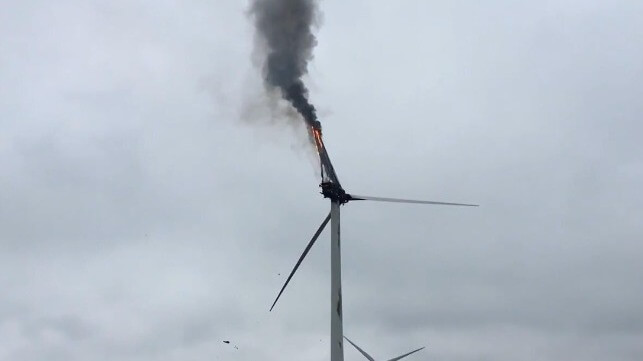Siemens Gamesa Uncovers Deep Flaws in Legacy Wind Turbine Fleet
The firm is the largest offshore wind turbine builder in the world, but the problems are concentrated in onshore models

Wind turbine builder Siemens Gamesa has warned previously that it faces large costs in connection with durability issues in its legacy fleet, but the exposure looks to be a lot larger than expected, the company warned on Friday. A thorough review has discovered a "substantial increase in failure rates of wind turbine components," and efforts to determine the depth of the problem continue.
"The result of the current review will be much worse than even I would have thought possible. The quality problems go well beyond what had been known hitherto, in particular in onshore," said Siemens Gamesa CEO Jochen Eickholt at a press conference Friday. "We are tackling the topic but it is time consuming and it comes at a cost."
The firm's Spanish (Gamesa) unit has discovered significant problems with rotor blades and bearings in some of its onshore turbine models, and there are issues facing older "legacy" installations as well, the firm said. The scope extends to 15-30 percent of the company's total installed fleet, according to Reuters.
The sweeping scope of the problem is coming into view just as parent company Siemens Energy is preaparing to acquire 100 percent of Siemens Gamesa, inheriting the full extent of its financial exposure. Siemens Energy has suspended its profit guidance, noting the possibility of more than $1 billion in extra costs. Shares in Siemens Energy plunged 37 percent in trading on Friday.
The legacy problems at Siemens Gamesa come just as it is ramping up to produce a new generation of ultra-large offshore wind turbines, built around its gearless direct drive technology. Its new 14 MW turbine is one of the biggest ever built, and it will be manufactured at scale to supply projects like East Anglia 3, one of the biggest wind farms in the world. Siemens Gamesa is by far the largest builder of offshore turbines, holding a 60 percent share of the non-Chinese global market.

that matters most
Get the latest maritime news delivered to your inbox daily.
Among renewable-power advocates and developers, the main concern is that the maintenance troubles at Siemens Gamesa could exacerbate the already-serious supply chain and inflation issues facing wind farm developers. If the manufacturer reorients part of its workforce and capital towards repairing past errors, it may have less horsepower available to drive its other product lines, which are sorely needed for the green transition.
"Even though it should be clear to everyone, I would like to emphasize again how bitter this is for all of us," said Eickholt at the press conference.
